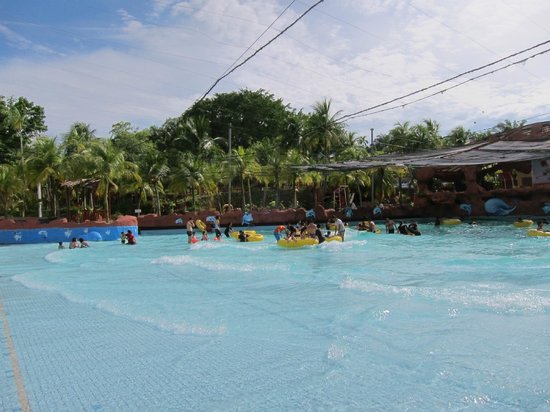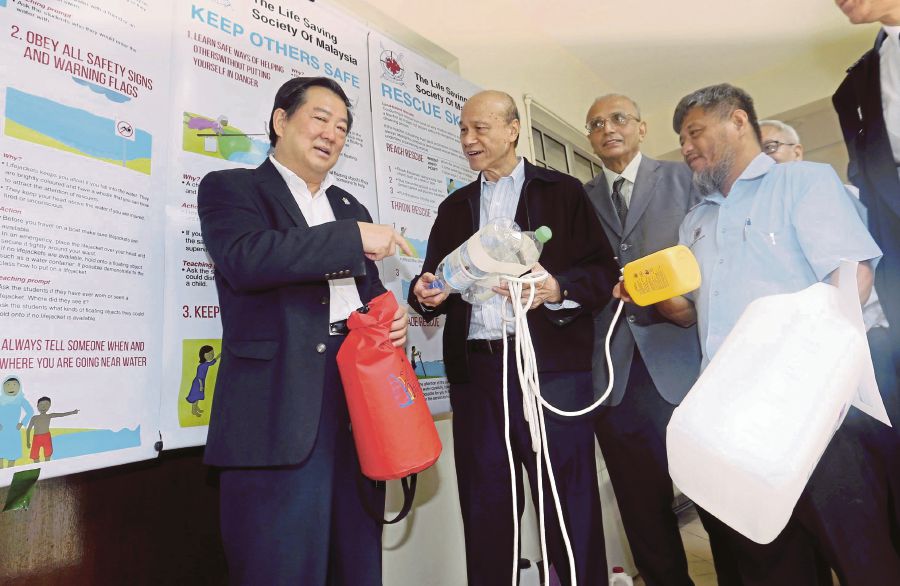This Is The Second Leading Cause Of Death Among Children In Malaysia
In just the first nine months of 2017, 31 children between the ages of two and nine have drowned in Malaysia.
Did you know that drowning is the second leading cause of death among children in Malaysia?
It was reported recently that 500 people between the ages of one and 18 drown in the country each year.
This was revealed by Perak Clinical Research Centre head Dr Amar Singh, as reported by Free Malaysia Today (FMT) yesterday, 11 October.
Dr Amar said that in just the first nine months of 2017, 31 children between the ages of two and nine drowned in hotels and theme park swimming pools in Malaysia. 75% of them are children below the age of five.
The three states with the highest number of fatalities among children that's caused by drowning are Selangor, Kedah, and Pahang
"The people know that dengue is important. But one dengue-related death involving a child is equal to 30 children who will drown. That is the comparison. Drowning is a much bigger problem.
"The main problem in Malaysia is that children try to save others. Their brothers, siblings and friends… that makes two factors which contribute to drowning.
"The message that is difficult to be passed on to them is that when other people are drowning, you do not get into the water or you will die, too. As a result, sometimes, two, three people die at the same time," stressed Dr Amar, during a press conference held at the launch of the Seminar on Prevention of Drowning by the National Institute of Occupational Safety and Health in Penang yesterday.
With the holiday season just around the corner, Dr Amar reminded parents to keep an eye on their children and for hotel managers and theme park administrators to tighten their security measures to prevent more drowning cases from happening
He said that most of the drowning cases involving children in theme parks and hotels happen due to the fact that most of these places are open areas with no fences and lifeguards.
"It is tragic for a young child to lose their life or be brain-damaged by drowning during a recreational activity," Dr Amar added.
Meanwhile, National Water Activity Safety Council (WASC) member Tan Sri Lee Lam Thye, said that drowning cases are preventable if everyone remains vigilant and carries out their duties
National Water Activity Safety Council (WASC) member Tan Sri Lee Lam Thye (second from left) at the Drowning Prevention Seminar in Penang yesterday, 11 October.
Image via Danial Saad/New Straits TimesOne of the best ways to prevent it, is for parents to constantly monitor their children while they're swimming or playing in the water.
"Drowning cases often involve students and teens, especially during the school holidays. More worrying, half of the victims are those who tried to save other children. More often than not, many parents are unaware that their children are playing near the river or pond," said Lee, as reported by New Straits Times.
He also urged relevant authorities to take the matter seriously and up their security game and for schools to raise awareness on the issue.
"Warning signs should be installed at strategic places to remind the public of the danger of drowning in high-risk areas while damaged or vandalised signages should be replaced immediately."
Lee said that we should come together as a society and make drowning prevention an important part of our culture.
"If possible, all children should be sent to swimming classes besides learning about first aid to help the victims of drowning and other disasters," he added.
According to a World Health Organisation (WHO) report, about 40 people drown worldwide, every hour. That's 372,000 people, every year.



